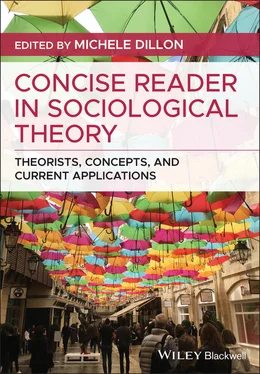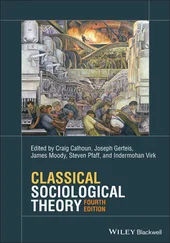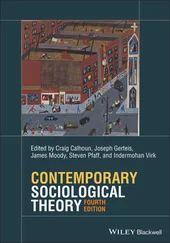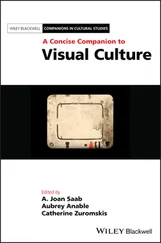Thus in the gravitation of market price to natural price it is the worker who loses most of all and necessarily . And it is just the capacity of the capitalist to direct his capital into another channel which either renders the worker, 2 who is restricted to some particular branch of labour, destitute, or forces him to submit to every demand of this capitalist.
||II, 1| The accidental and sudden fluctuations in market price hit rent less than they do that part of the price which is resolved into profit and wages; but they hit profit less than they do wages. In most cases, for every wage that rises, one remains stationary and one falls .
The worker need not necessarily gain when the capitalist does, but he necessarily loses when the latter loses . Thus, the worker does not gain if the capitalist keeps the market price above the natural price by virtue of some manufacturing or trading secret, or by virtue of monopoly or the favourable situation of his land.
Furthermore, the prices of labour are much more constant than the prices of provisions . Often they stand in inverse proportion. In a dear year wages fall on account of the decrease in demand, but rise on account of the increase in the prices of provisions – and thus balance. In any case, a number of workers are left without bread. In cheap years wages rise on account of the rise in demand, but decrease on account of the fall in the prices of provisions – and thus balance.
Another respect in which the worker is at a disadvantage:
The labour prices of the various kinds of workers show much wider differences than the profits in the various branches in which capital is applied . In labour all the natural, spiritual, and social variety of individual activity is manifested and is variously rewarded, whilst dead capital always keeps the same pace and is indifferent to real individual activity.
In general we should observe that in those cases where worker and capitalist equally suffer, the worker suffers in his very existence, the capitalist in the profit on his dead mammon.
The worker has to struggle not only for his physical means of subsistence; he has to struggle to get work, i. e., the possibility, the means, to perform his activity.
Let us take the three chief conditions in which society can find itself and consider the situation of the worker in them:
(1) If the wealth of society declines the worker suffers most of all, and for the following reason: although the working class cannot gain so much as can the class of property owners in a prosperous state of society, no one suffers so cruelly from its decline as the working class . 3
||III, 1| (2) Let us now take a society in which wealth is increasing. This condition is the only one favourable to the worker. Here competition between the capitalists sets in. The demand for workers exceeds their supply. But:
In the first place , the raising of wages gives rise to overwork among the workers. The more they wish to earn, the more must they sacrifice their time and carry out slave‐labour, completely losing all their freedom, in the service of greed. Thereby they shorten their lives. This shortening of their life‐span is a favourable circumstance for the working class as a whole, for as a result of it an ever‐fresh supply of labour becomes necessary. This class has always to sacrifice a part of itself in order not to be wholly destroyed.
Furthermore : When does a society find itself in a condition of advancing wealth? When the capitals and the revenues of a country are growing. But this is only possible:
( α ) As the result of the accumulation of much labour, capital being accumulated labour; as the result, therefore, of the fact that more and more of his products are being taken away from the worker, that to an increasing extent his own labour confronts him as another man’s property and that the means of his existence and his activity are increasingly concentrated in the hands of the capitalist.
( β ) The accumulation of capital increases the division of labour, and the division of labour increases the number of workers. Conversely, the number of workers increases the division of labour, just as the division of labour increases the accumulation of capital. With this division of labour on the one hand and the accumulation of capital on the other, the worker becomes ever more exclusively dependent on labour, and on a particular, very one‐sided, machine‐like labour at that. Just as he is thus depressed spiritually and physically to the condition of a machine and from being a man becomes an abstract activity and a belly, so he also becomes ever more dependent on every fluctuation in market price, on the application of capital, and on the whim of the rich. Equally, the increase in the ||IV, 1| class of people wholly dependent on work intensifies competition among the workers, thus lowering their price. In the factory system this situation of the worker reaches its climax.
( γ ) In an increasingly prosperous society only the richest of the rich can continue to live on money interest. Everyone else has to carry on a business with his capital, or venture it in trade. As a result, the competition between the capitalists becomes more intense. The concentration of capital increases, the big capitalists ruin the small, and a section of the erstwhile capitalists sinks into the working class, which as a result of this supply again suffers to some extent a depression of wages and passes into a still greater dependence on the few big capitalists. The number of capitalists having been diminished, their competition with respect to the workers scarcely exists any longer; and the number of workers having been increased, their competition among themselves has become all the more intense, unnatural, and violent. Consequently, a section of the working class falls into beggary or starvation just as necessarily as a section of the middle capitalists falls into the working class.
Hence even in the condition of society most favourable to the worker, the inevitable result for the worker is overwork and premature death, decline to a mere machine, a bond servant of capital, which piles up dangerously over and against him, more competition, and starvation or beggary for a section of the workers.
||V, 1| The raising of wages excites in the worker the capitalist’s mania to get rich, which he, however, can only satisfy by the sacrifice of his mind and body. The raising of wages presupposes and entails the accumulation of capital, and thus sets the product of labour against the worker as something ever more alien to him. Similarly, the division of labour renders him ever more one‐sided and dependent, bringing with it the competition not only of men but also of machines. Since the worker has sunk to the level of a machine, he can be confronted by the machine as a competitor. Finally, as the amassing of capital increases the amount of industry and therefore the number of workers, it causes the same amount of industry to manufacture a larger amount of products , which leads to over‐production and thus either ends by throwing a large section of workers out of work or by reducing their wages to the most miserable minimum.
[…]
Profit of Capital
Capital
||I, 2|What is the basis of capital , that is, of private property in the products of other men’s labour?
“Even if capital itself does not merely amount to theft or fraud, it still requires the co‐operation of legislation to sanctify inheritance.” (Say, [ Traité d’économie politique ,] t. I, p. 136, note.) 4
How does one become a proprietor of productive stock? How does one become owner of the products created by means of this stock?
Читать дальше












